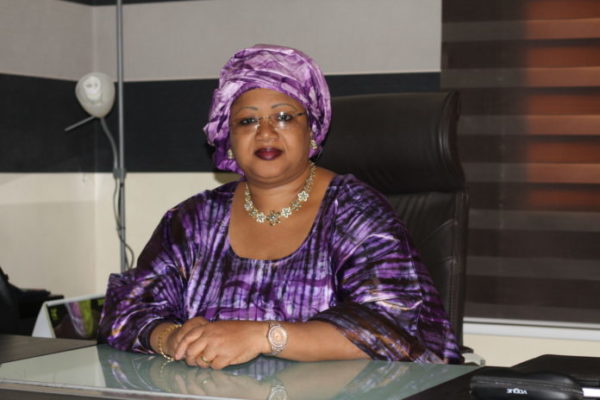As a prelude to their planned days in Kigali on April 3 and 4, 2018,
Ms. Minian BENGALY-BERTHE, Executive Secretary of the African Association of Banking and Financial Institutions Lawyers (AJBEF).
Created to enable African banking lawyers to respond to the concerns of banks and financial institutions, the African Association of Lawyers Banks and Financial Institutions (AJBEF) is a real framework for exchanges between professionals in the sector. Today composed of 16 member countries, AJBEF intends to revitalize its troops. Executive Secretary of the association, Mrs Minian BENGALY-BERTHE, answers Financial Afrik’s questions.
How was AJBEF created?
I am a bank lawyer and executive secretary of the African Association of Banking and Financial Institutions Lawyers (AJBEF) since 2016. AJBEF is an association initiated by the club of bank managers and created in 2000 in Dakar. Since its creation, the objective of the association is to allow the lawyers of banks to have a framework of exchange and improvement to answer more effectively the solicitations of the banks.
When it was created in 2000, there was a new dynamic, such as the current OHADA, the Organization for the Harmonization of Business Law in Africa, which came into force in 1998. As a result, there was a major change in the banking sector, and institutional reforms also followed. As a result, lawyers were in great demand and it was necessary to respond in real time to the needs of managers.
How does the association work?
AJBEF is an association of African bank lawyers with 16 member countries. We started with West and Central Africa because they are countries that are in Ohada and we have a common interest in coming together to address the issues.
It’s been 17 years since the association was created, 18 years old this year, and every year we organize meetings in one of the member countries. For this year 2018, we will be in Bujumbura, capital of Burundi. Hence my presence today in Dakar (Editor’s note, February 2018) to launch the activities of the meeting. The reflections will focus on the theme “banking particularism and the resolution of related problems”.
What is the particularity of the lawyer of the bank?
You know, the bank is not a commercial company like the others. The involvement of the state and the monetary authorities, as well as the sensitivity of the clientele, make the bank special enough to manage compared to other companies.
We face another problem. At the level of the courts, the judges understand the bank as a normal society whereas it can not act as such vis-à-vis its customers. So every year when we can, we try to invite judges, notaries and lawyers, our privileged partners, and non-lawyers to participate in our meetings.
I can say that from 2000 to today, the association has trained more than 800 people. The members of the association are estimated between 250 and 300 people besides dormant members because there are members who are not very active at present. This brings me to today’s action plan 2016-2020 of the current office because we realized that apart from the days we do not have the means to boost the association while the objective is to create a framework of signature, meeting jurists that allows them to discuss the issues they face on a daily basis.
What are the objectives of the action plan?
The current objectives of the 2016 2018 plan translated into action plan, is to revitalize the activities of the association, to revitalize the members of the association by the network updates because today we have whatsapp, Facebook as well as all networks created and that are utilitarian. This will make it possible to respond in real time to the problems faced by banks because banking activity is essentially based on banking use. There are the texts, there are the rules but it is the banking practice that makes us suffer today as lawyers.
The second part concerns training with the development of the skills of bank lawyers. A good bank lawyer must be able to answer all the questions, all the problems posed at the bank, not only to settle conflicts but especially to anticipate them. And as soon as a customer walks through the bank’s door, the lawyer must be able to be from the beginning to the end of the process. We are supported by the club of bank executives who support us from the beginning because it must be said that it was at the initiative of this club that the association was created.
All this at a cost, how are you doing to find the funding?
For the search for resources, we intend to publish in the near future all the AJBEF’s communications of all the days organized so far. In 16 years today, these communications have never been published. We will be able to make them available to lawyers and non-lawyers and even available to students who need them in their training. We also encourage lawyers to make publications.
We also count on public rights because at the creation of AJBEF, it was planned that each country set up a local antenna. Soon, we are going to Bujumbura from April 4 to 6, because Burundi to join the association last year. It is true that we are not in the same currency area, but this will allow us to exchange and make a comparative study between the various rights that govern the banking activity in the different monetary zones. But it turns out that these texts, with one difference, are the same.



